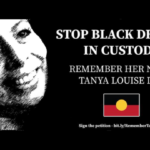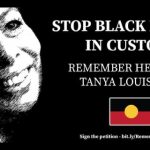Victoria May Finally Abolish the Crime of Public Intoxication

The Victorian Government will finally abolish the crime of public drunkenness, with the commencement of the new health-led approach planned for Melbourne Cup Day in November later this year.
The Victorian Government has been promising since 2019 to decriminalise public drunkenness without any serious action being taken, so it’s welcome news that the plan is now going ahead.
The plan to abolish the offence, which after November will only still exist in Queensland, is, result of the avoidable death of Yorta Yorta woman Tanya Day who died in police custody after being picked up on a train because she was intoxicated.
Despite the requirement under police guidelines that Ms Day be physically checked by an officer on duty every 30 minutes, and when checked upon should be woken to give a verbal response, Ms Day was left alone, with police checking her through the opening in the cell door.
CCTV footage shows Ms Day fell several times and bumped her head on the concrete wall. When a physical check up of Ms Day was done three hours later, police noticed the bruise on her forehead. She was transported to Bendigo hospital where a scan revealed a massive brain hemorrhage. She was flown by helicopter to St Vincent’s Hospital in Melbourne, where she underwent emergency surgery but never recovered. She died in hospital.
A subsequent coronial inquest determined that her death was preventable.
Public intoxication service
The Victorian Government has made much of the new health-led approach that will replace arrest and time in custody, and it is designed as a dedicated Aboriginal service response to public drunkenness in Melbourne as well as 10 other suburbs and regional locations.
Under the scheme intoxicated people will have to provide consent to receive assistance from the “public intoxication service”, however it will provide immediate support including minor first aid, food and water, phone charging and help the intoxicated person to locate friends or family.
Intoxicated persons will be offered safe transport home or to a friend or family member’s home. If those are not available, the person will be transported to a sobering-up centre, where they will be monitored by health workers. Follow-up and referrals to other organisations may also be offered within 48 hours for those who need them.
The framework states explicitly that police cells should be not used for the sole purpose of intoxication, and escalation to police “should only occur in exceptional circumstances where there is a real and immediate risk to community safety”.
Police involvement in health-led response
However, other reported information suggests that police will still be significantly involved in responding to incidents of public drunkeness, particularly when first responders are not available, which may occur because of “limitations in geographic coverage and times”.
Both the Aboriginal Legal Service of Victoria and the Police Union have been highly critical of maintaining police involvement in the new service.
The Police Union says that if police must be involved, then they need to have better training.
The Aboriginal Legal service has expressed serious concerns that police have any ongoing involvement at all – suggesting that their involvement should be strictly limited and only temporary until the service can be fully rolled out across the state.
Abolishing the offence of public drunkenness and dealing with intoxicated people is not just about dealing with someone until they sober up.
Public drunkenness can be a mask for other things such as drink or food spiking. In some cases ‘sobering up’ can be complicated by other health issues as well as drug dependency.
Developing a health-led approach is to ensure that people get immediate help from professionals who can manage complex health needs and appropriately monitor a person’s condition, immediately escalating access to additional and specialist health services, if the need arises.
Queensland must repeal public drunkenness laws
The Victorian State Government has said that the model will evolve and that it is still being “guided by health experts, communities and services championing these reforms.”
After the new service comes into effect in November, Queensland will be the only state where public drunkenness remains a crime. All other states have long abolished this offence because it disproportionately affects indigenous people.
Despite the Coroner suggesting that the police officers who were on duty the day that Tanya Day fell multiple times in her cell could potentially be found criminally negligent, Victoria Police has made the decision not to press charges.







